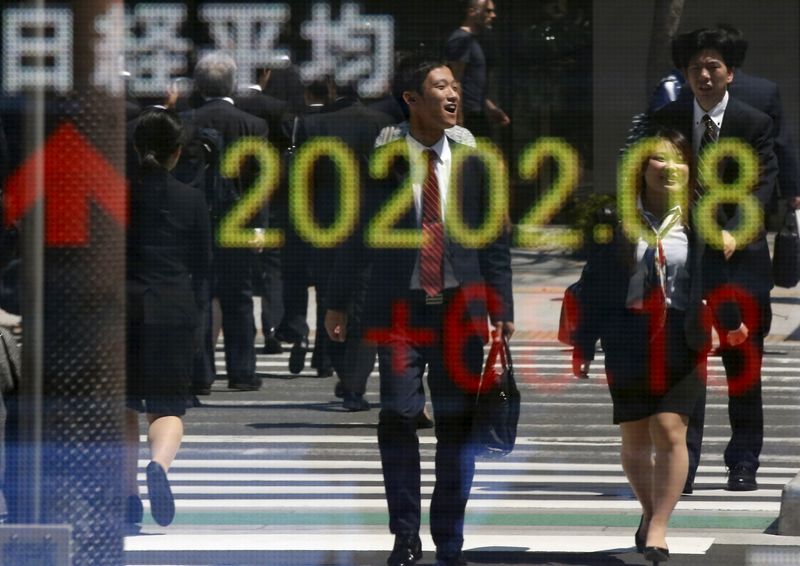By Gina Lee
Investing.com – Asian stocks ended the week on a high buoyed by the NASDAQ board entering positive territory for the first time in 2020 during the previous session.
Japan’s Nikkei 225 led the gains as it rose 2.07% by 10:53 PM ET (3: AM GMT) after the country granted “exceptional approval” to Gilead Sciences' (NASDAQ:GILD) remdesivir. The drug received FDA emergency use authorization earlier in the week.
Japan’s Fujifilm Holdings (T:4901) also announced the development of a PCR reagent to speed up testing for COVID-19 from four-six hours to 75 minutes.
Meanwhile, Japanese household spending in March month-on-month dropped to -4%, in line with analyst forecasts prepared by Investing.com. However, household spending year-on-year dropped -6%, less than analyst forecasts of -6.7%.
Down Under, the S&P/ASX 200 rose 0.73% after the Reserve Bank of Australia released its monetary policy statement earlier in the day. The RBA highlighted that global GDP is “expected to fall sharply in the first half of 2020,and that “the declines in the March quarter were driven by a contraction in Chinese and euro area activity as well as the rollout of containment measures elsewhere late in the quarter.”
The statement concluded that “a further fall in global GDP is expected in the June quarter, with many countries expected to record quarterly declines in GDP.”
South Korea’s KOSPI gained 1.27%, while Hong Kong’s Hang Seng Index was up by 1.02%.
China’s Shanghai Composite was up 0.62% while the Shenzhen Component was up 0.91% after top negotiators for the U.S. and China vowed to support the first phase of a trade deal between the two countries.
Meanwhile, Thursday’s report that 3.169 million Americans claimed unemployment benefits sent the U.S. unemployment rate up to 165 with more than 31 million Americans losing their jobs since late March.
Despite the dismal data, some investors remained optimistic that stocks would recover as countries continue to reopen amid slowing numbers of COVID-19 cases and deaths. But other investors continued to calculate the economic costs.
“While the collapse in economic activity is historic, so too is the global policy response to cushion the impact and support a recovery,” JPMorgan Chase (NYSE:JPM) & Co. strategists including Marko Kolanovic said in a May 7 note.
“We expect risky assets to continue to recover as economies reopen,” though the pace of gains will likely slow, they wrote.
